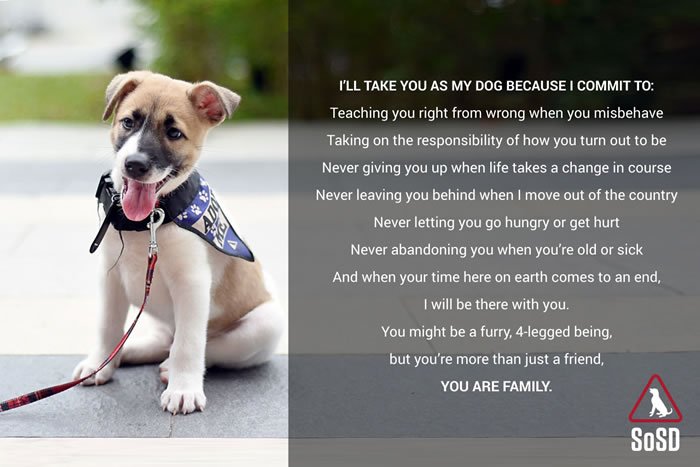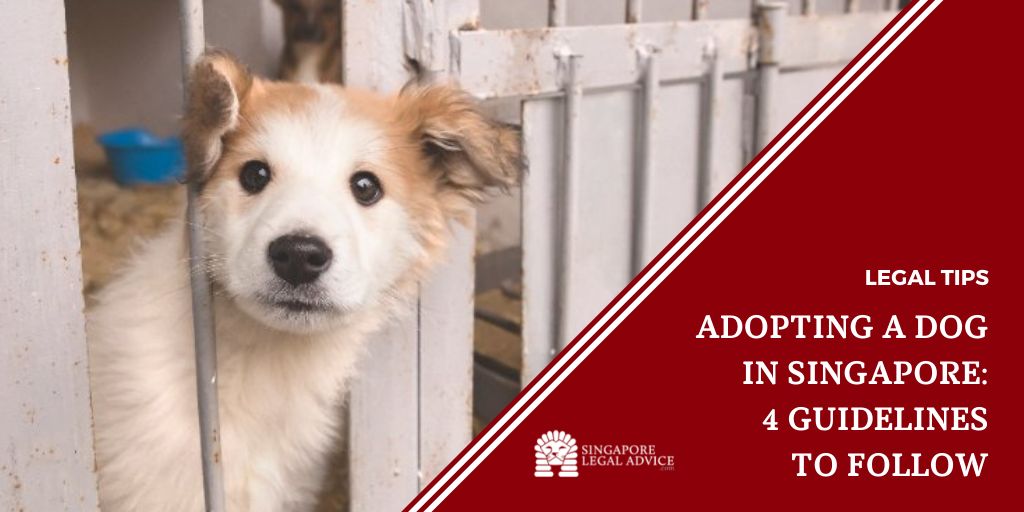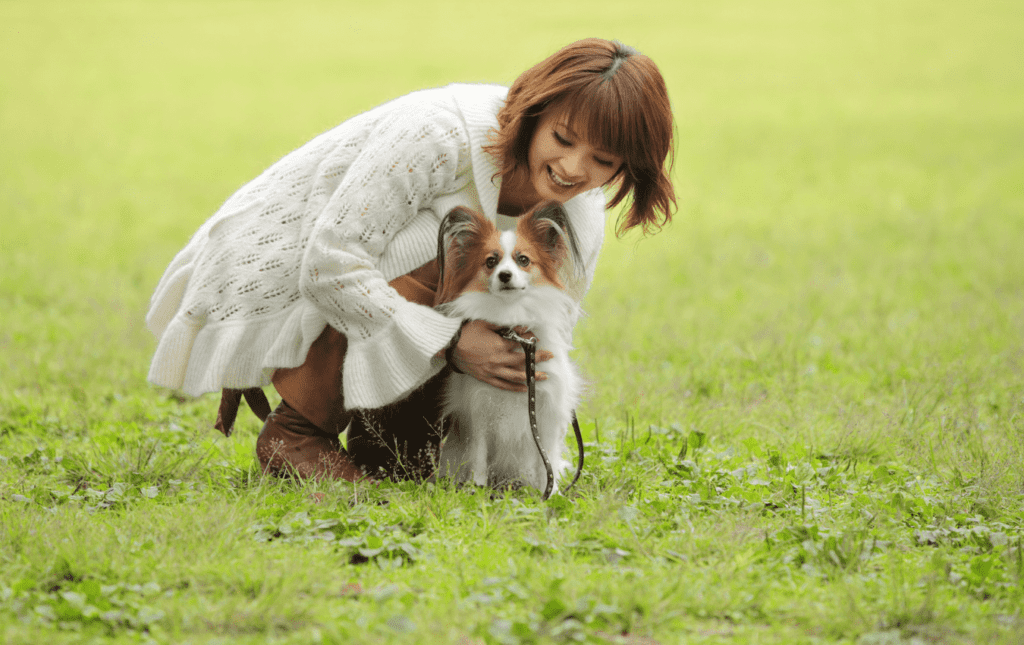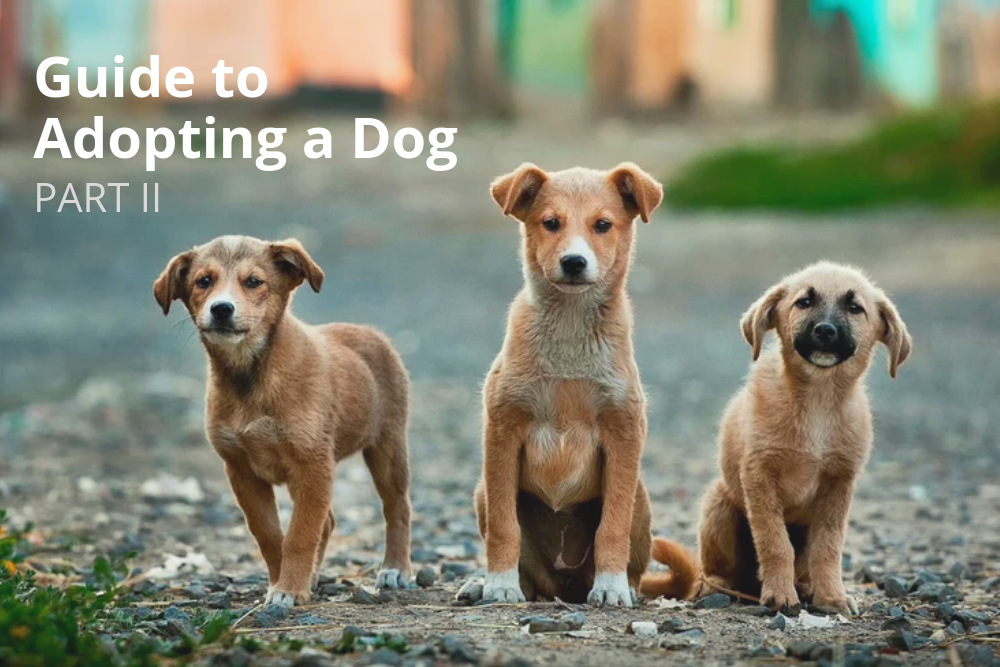Table of Contents
Are you considering adding a furry friend to your family in Singapore? Look no further, as this article will guide you through the process of adopting a dog in the Lion City. From finding the perfect shelter or rescue organization to understanding the necessary paperwork and requirements, you’ll discover all the essential information to embark on this heartwarming journey. So, if you’re ready to open your home and heart to a loyal canine companion, let’s explore how you can make that happen in Singapore.

Choosing to Adopt a Dog
Considering the Decision
Deciding to adopt a dog is a big commitment and one that should not be taken lightly. Before making the decision to bring a furry friend into your life, it’s important to consider a few key factors. First and foremost, think about your lifestyle and how a dog would fit into it. Dogs require time, attention, and care, so make sure you have the necessary resources to provide for their needs. Additionally, consider the financial responsibilities that come with owning a dog, including food, veterinary care, and other expenses. Lastly, think about your living situation. Do you have enough space for a dog? Are you allowed to have pets in your home? Taking all of these factors into account will help you make an informed decision about whether or not adopting a dog is right for you.
Understanding the Commitment
When you adopt a dog, you are making a long-term commitment to care for and provide a loving home for another living being. Dogs can live for over a decade, so it’s important to be prepared for the responsibility that comes with their care. This includes feeding them nutritious food, providing regular exercise and mental stimulation, and ensuring they receive routine veterinary care. Dogs also require social interaction and companionship, so be prepared to spend quality time with your new furry friend. It’s important to truly understand and be ready to fulfill the commitment of owning a dog before embarking on the adoption process.
Researching Dog Breeds
Before you can adopt a dog, it’s essential to research different breeds and find one that aligns with your lifestyle and preferences. Different breeds have different temperaments, activity levels, and care requirements. Some breeds are more suited to apartment living, while others thrive in a larger, more active household. Researching different breeds will help you find a dog that matches your energy level, living situation, and the amount of time you can dedicate to their care. It’s important to remember that each dog is an individual, so even within a specific breed, there can be variations in temperament and behavior. However, understanding the general characteristics of different breeds will give you a good starting point in finding the right dog for you.
Assessing Compatibility
When adopting a dog, it’s crucial to assess your compatibility with the potential furry companion. Compatibility goes beyond simply finding a breed that fits your lifestyle; it also involves considering your family dynamics, temperament, and physical needs. Consider factors such as: Do you have children, and how will they interact with a dog? Are you an active individual who enjoys outdoor activities, or do you prefer a more laid-back lifestyle? Additionally, think about any allergies or medical conditions that you or your family members may have. It’s important to ensure that everyone in your household is compatible with the specific dog you choose to adopt. Assessing compatibility is crucial for establishing a successful and harmonious relationship with your new four-legged friend.
Finding a Reliable Adoption Agency or Shelter
Researching Adoption Agencies
When it comes to adopting a dog, finding a reliable adoption agency or shelter is paramount. Research different adoption agencies in your area to ensure they have a reputable track record and prioritize the well-being of their animals. Look for agencies that provide proper care, medical attention, and a safe environment for the dogs in their care. It’s also important to find an adoption agency that conducts thorough behavioral assessments and provides accurate information about each dog’s temperament and needs. Take the time to read about the agency’s mission and values to ensure they align with your own beliefs and expectations.
Checking for Accreditation
Accreditation is an essential aspect to consider when choosing an adoption agency or shelter. Accredited agencies follow certain standards and guidelines to ensure the well-being and proper placement of the dogs in their care. Look for organizations that are accredited by reputable associations or animal welfare organizations. This accreditation serves as a validation of the agency’s commitment to ethical practices and responsible adoptions. By choosing an accredited adoption agency, you can have peace of mind knowing that the dogs are in good hands and receive the care they deserve.
Reading Reviews and Testimonials
Before finalizing your decision, it’s helpful to read reviews and testimonials from other individuals who have adopted from the agency or shelter you are considering. Reviews can provide valuable insights into the adoption process, the quality of care provided, and the overall experience of working with the agency. Look for reviews on reputable websites or platforms that allow verified adopters to share their experiences. These reviews can give you a better understanding of what to expect and help you make an informed decision about which agency or shelter to choose.
Visiting Shelters
Once you have narrowed down your options, visiting shelters in person is highly recommended. By visiting shelters, you have the opportunity to meet the dogs, interact with them, and observe their behavior firsthand. Pay attention to how the dogs interact with the shelter staff, volunteers, and other potential adopters. Take note of any signs of fear, aggression, or anxiety that may indicate underlying issues. It’s important to find a shelter that prioritizes the well-being and socialization of their dogs and provides a clean and safe environment. By visiting shelters, you can get a sense of the overall atmosphere and assess if it’s a suitable place for you to find your new furry companion.

Preparing Your Home and Family
Creating a Pet-friendly Environment
Before bringing your new dog home, it’s important to create a pet-friendly environment to ensure their safety and comfort. Remove any hazardous objects or chemicals that could potentially harm your dog. Secure loose cords, cover electrical outlets, and set up barriers to restrict their access to certain areas of your home if needed. Provide a comfortable and safe space for your dog to rest and sleep, such as a cozy bed or crate. Consider investing in appropriate toys and chews to keep your dog entertained and mentally stimulated. By creating a pet-friendly environment, you are setting the stage for a smooth and enjoyable transition for your new canine companion.
Setting Rules and Responsibilities
Establishing rules and responsibilities is crucial to ensure a harmonious relationship between your entire family and your new dog. Determine who will be responsible for feeding, walking, grooming, and training the dog. Consistency in routines and expectations is essential for a well-behaved and happy dog. Set boundaries and rules from the beginning, such as which areas of the house the dog is allowed in and where they will sleep. It’s also important to establish rules for interactions with the dog, particularly if you have children. Teaching your children how to properly handle and interact with the dog will help prevent any potential accidents or conflicts.
Addressing Allergies or Medical Conditions
If you or anyone in your household has allergies or specific medical conditions, it’s crucial to address these concerns before adopting a dog. Some breeds are known to trigger allergies more than others, so researching hypoallergenic or low-shedding breeds may be beneficial. However, it’s important to note that individual dogs within a breed can vary in allergenicity. Consider consulting with a healthcare professional or an allergist to help determine if owning a dog is suitable for your specific circumstances. If allergies or medical conditions can be managed, it may still be possible to find a dog that brings joy and companionship into your life.
Involving All Family Members
When adopting a dog, involving all family members in the process is vital. Discussing the decision to adopt a dog as a family allows everyone to express their thoughts, concerns, and expectations. This open communication ensures that everyone is on the same page and committed to the responsibility of dog ownership. Additionally, involving all family members in the adoption process, such as visiting shelters and meeting potential dogs, helps to build a bond with the new addition and create a sense of collective ownership. By involving everyone in the adoption journey, you are setting the stage for a positive and inclusive experience for both your family and the new dog.
Understanding Adoption Procedures and Requirements
Fulfilling Adoption Criteria
Each adoption agency or shelter will have specific criteria that potential adopters must fulfill. These criteria often include factors such as age, residency, and financial stability. Make sure to carefully review and understand the adoption criteria set by the agency or shelter you are interested in. If there are any requirements that you do not meet, it’s crucial to respect their guidelines and consider other options. By fulfilling adoption criteria, you demonstrate your commitment and readiness to provide a loving home for a dog in need.
Completing an Adoption Application
To initiate the adoption process, most adoption agencies and shelters require potential adopters to complete an adoption application. This application typically includes questions about your lifestyle, previous pet ownership experience, and your intentions for adopting a dog. Be honest and thorough when filling out the application, as it helps the agency or shelter match you with the right dog. Providing accurate information will increase your chances of finding a compatible furry companion and facilitate the adoption process.
Providing Necessary Documentation
In addition to completing an adoption application, you may be required to provide certain documentation as part of the adoption process. Common documents requested include proof of identification, proof of residency, and proof of income or financial stability. Some adoption agencies may also request personal references or veterinary references to ensure that their dogs are placed in responsible and caring homes. It’s important to have these documents readily available to avoid any delays in the adoption process.
Meeting Adoption Fees and Expenses
Adopting a dog involves various costs, including adoption fees and ongoing expenses. Adoption fees typically cover the costs associated with the dog’s care while they were in the shelter, including vaccinations, spaying or neutering, and microchipping. It’s important to be financially prepared to cover these expenses. Additionally, ongoing expenses related to food, grooming, veterinary care, and other supplies should be considered. Budgeting for these expenses ensures that you can provide the necessary care and support for your new furry family member.

Meeting and Choosing a Dog
Attending Adoption Events
Many adoption agencies and shelters organize adoption events where potential adopters can meet and interact with dogs available for adoption. Attending these events provides an opportunity to meet multiple dogs at once and see if there is a connection. Adoption events often have staff and volunteers available to answer questions and provide guidance. It’s important to remember that not all dogs at these events may be a perfect match for you, so be patient and keep an open mind. The primary goal of attending adoption events is to find a dog that is compatible with your lifestyle and who you can provide a forever home for.
Interacting with Dogs
When meeting dogs at adoption events or shelters, it’s important to interact with them to assess their behavior and temperament. Approach the dogs calmly and give them a chance to approach you in their own time. Observe their body language and how they respond to your presence. Some dogs may be more outgoing and friendly, while others may be more reserved or shy. Take note of their reactions to different situations and their interactions with other dogs or people. The goal of interacting with dogs is to get a sense of their personality and determine if their energy level and temperament align with what you are looking for in a dog.
Observing Behavior and Temperament
Observing a dog’s behavior and temperament is crucial in determining if they will be a good fit for your home and lifestyle. Look for signs of aggression, fearfulness, or anxiety, as these can be challenging issues to address. A well-adjusted and socialized dog is usually friendly, responsive, and confident. Dogs with good temperaments are more likely to adapt well to their new home and be easier to train. However, keep in mind that some dogs may exhibit behavior challenges due to past experiences or lack of socialization. If you are unsure about a dog’s behavior or temperament, seek guidance from shelter staff or a professional dog trainer.
Seeking Professional Guidance
If you are uncertain about choosing the right dog for your family, seeking professional guidance can be immensely helpful. Dog trainers or behaviorists who specialize in shelter or rescue dogs can provide valuable insights and assessments. These professionals can help match you with a dog that fits your lifestyle and provide guidance on managing any behavior challenges that may arise. They can also assist with introductions and initial training to ensure a smooth transition for both you and your new fur baby. Seeking professional guidance is a proactive step that can increase the chances of a successful adoption and long-term companionship.
Completing the Adoption Process
Signing Adoption Agreement
Once you have chosen a dog and have been approved for adoption, the next step is to sign the adoption agreement. The adoption agreement is a legally binding document that outlines the responsibilities and expectations of both the adopter and the adoption agency or shelter. It usually includes information regarding the dog’s health, any known behavioral issues, any limitations on the adopter’s part, and the commitment to providing appropriate care for the dog. It’s essential to carefully review and understand the adoption agreement before signing it. If you have any questions or concerns, discuss them with the agency or shelter staff before finalizing the adoption.
Receiving Dog’s Medical History
As part of the adoption process, you should receive the dog’s medical history, including vaccination records, previous medical treatments, and any known health issues. This information is vital for providing appropriate veterinary care and ensuring the overall well-being of the dog. Review the medical history with your veterinarian to ensure you are aware of any ongoing treatments or necessary follow-up care. Understanding the dog’s medical history allows you to provide the necessary care and treatments to keep them healthy and happy for years to come.
Getting Microchipping and Vaccinations
Microchipping and vaccinations are essential aspects of responsible dog ownership. Microchipping involves placing a small implant under the dog’s skin, which contains their unique identification number. This helps ensure that your dog can be easily identified and returned to you if they ever become lost. Vaccinations protect your dog from potentially serious and contagious diseases. Make sure that your new dog is up to date on their vaccinations and that the microchip information is registered with a national database. Follow the advice of your veterinarian regarding future vaccinations and preventive care.
Taking Care of Legal Registration
After completing the adoption process, it’s important to take care of the legal registration of your new dog. This may involve registering your dog with local authorities, obtaining a license, or complying with any breed-specific regulations or restrictions in your area. Make sure to research and understand the legal requirements for dog ownership in your region and fulfill them accordingly. By taking care of the legal registration, you are ensuring that your new furry friend is recognized and protected under the law.

Preparing Your Home for the Dog’s Arrival
Setting Up a Comfortable Space
Creating a comfortable and designated space for your new dog is crucial to help them feel secure and settle into their new home. Choose an area in your home where your dog can rest, sleep, and feel safe. This space can be a dog bed, a crate, or a specific room. Place familiar and comforting items, such as blankets or toys, in their space. Make sure the area is clean, free from any hazards, and provides adequate ventilation and temperature control. By setting up a comfortable and secure space, you are creating a welcoming environment for your new dog.
Gathering Necessary Supplies
Before your new furry friend arrives, it’s important to gather all the necessary supplies they will need. This includes food and water bowls, bedding, a collar and leash, toys, grooming tools, and cleaning supplies. Research and choose appropriate dog food that meets their specific nutritional needs. Consult with the adoption agency or shelter for any specific recommendations or requirements they may have regarding supplies. By having all the necessary supplies ready, you can ensure a smooth transition and provide the best care for your new canine companion.
Arranging Transportation
If you are adopting a dog from a shelter or adoption agency that is not within walking distance, it’s important to arrange transportation for the dog’s arrival. Consider the size and needs of the dog when choosing the mode of transportation. For smaller dogs, a secure carrier or crate may be suitable. For larger dogs, ensure that your vehicle has enough space and is equipped with appropriate safety measures, such as a dog seat belt or a pet barrier. Plan the transportation carefully to minimize stress for both you and your new dog.
Informing Neighbors or Building Management
Before bringing your new furry friend home, it’s polite and considerate to inform your neighbors or building management about your new addition. Letting them know in advance can help avoid any issues or conflicts and ensure a positive living environment for everyone. Some apartment buildings or housing communities may have specific rules or regulations regarding pet ownership, so it’s important to familiarize yourself with these and comply accordingly. By informing your neighbors or building management, you can build a positive relationship with them and create a harmonious living environment for your new dog.
Welcoming and Settling In the Dog
Introducing the Dog to the Home
When you bring your new dog home, it’s essential to introduce them to their new environment gradually and in a controlled manner. Start by providing a tour of the house or apartment, allowing them to explore each room at their own pace. Show them their designated sleeping area, feeding area, and any other areas they will have access to. It’s important to supervise your dog during these initial introductions and ensure their safety. Keep any outside doors closed to prevent them from escaping and getting lost. By introducing the dog to the home slowly and under supervision, you are helping them feel more comfortable and secure in their new surroundings.
Establishing a Daily Routine
Establishing a daily routine is crucial for your dog’s well-being and helps them feel secure and settled in their new home. Set consistent feeding times, exercise routines, and potty breaks to maintain a sense of stability and predictability. Dogs thrive on routines and knowing what to expect throughout their day. Incorporate regular playtime, training sessions, and relaxation time into their daily schedule. Consistency in their daily routine will help with their behavioral development and strengthen the bond between you and your new furry family member.
Providing Basic Training
Basic training is an essential part of dog ownership and helps set the foundation for a well-behaved and obedient dog. Teach your new dog basic commands such as sit, stay, come, and leave it. Positive reinforcement training methods, such as using treats and praise, are effective in teaching dogs new behaviors. Be patient and consistent with training, and remember that each dog learns at their own pace. Consider enrolling in a local dog training class or seeking professional guidance to further enhance your dog’s training and socialization skills.
Allowing Time for Adjustment
Adjusting to a new home and family can be overwhelming for a dog, so it’s important to allow them time to settle in and adjust at their own pace. Each dog will have a different adjustment period depending on their personality and background. Some dogs may settle in quickly, while others may take weeks or even months. Be patient and understanding during this time and provide a supportive and loving environment. Allow your dog to gradually explore their new surroundings and build trust with you and other family members. With time and patience, your new dog will feel more comfortable and become an integral part of your family.

Ensuring Proper Care and Well-being
Feeding a Balanced Diet
Feeding your dog a balanced and nutritious diet is crucial for their overall health and well-being. Consult with your veterinarian to determine the appropriate type and amount of food for your dog based on their age, size, and any specific dietary needs they may have. Choose high-quality dog food that contains essential nutrients and avoids fillers or unnecessary additives. Follow the feeding guidelines provided by the food manufacturer and monitor your dog’s weight and body condition. Regularly evaluate their dietary needs as they age, and make any necessary adjustments to ensure they maintain a healthy weight and optimal nutrition.
Regular Exercise and Mental Stimulation
Regular exercise and mental stimulation are essential aspects of maintaining a happy and healthy dog. Dogs have varying exercise needs depending on their breed, age, and overall health. Engage in daily walks, play sessions, and interactive games to provide physical exercise and mental stimulation. Incorporate training sessions and brain-teasing toys to keep their minds sharp. Mental stimulation is just as important as physical exercise and helps prevent boredom, anxiety, and behavioral issues. Tailor the exercise and mental stimulation activities to your dog’s individual needs and monitor their energy level to ensure they are receiving an adequate amount of exercise.
Grooming and Hygiene
Proper grooming and hygiene practices are essential for maintaining your dog’s health and keeping them clean and comfortable. Regularly brush your dog’s coat to remove loose hair, prevent matting, and distribute natural oils. The frequency of grooming will vary depending on your dog’s coat type. Some dogs may require regular grooming sessions, while others may only need occasional brushing. Additionally, regularly check and clean your dog’s ears, trim their nails, and brush their teeth. Pay attention to any changes in their skin or coat, and consult with your veterinarian if you notice any abnormalities or concerns.
Routine Veterinary Care
Routine veterinary care is vital for keeping your dog healthy and addressing any potential health issues proactively. Schedule regular wellness check-ups with your veterinarian to monitor your dog’s overall health and receive any necessary vaccinations or preventive treatments. Follow their recommended vaccination schedule to protect your dog from contagious diseases. Additionally, discuss with your veterinarian the appropriate preventive measures for fleas, ticks, heartworms, and intestinal parasites. Regular veterinary care is essential for early detection and treatment of any underlying health conditions, ensuring your dog’s well-being and longevity.
Joining Supportive Dog-owner Communities
Connecting with Other Dog Owners
Joining supportive dog-owner communities can provide valuable resources, advice, and camaraderie. Connecting with other dog owners allows you to share experiences, seek guidance, and learn from one another. Attend local dog parks, obedience classes, or other community events where dog owners gather. Strike up conversations and build relationships with fellow dog enthusiasts. Engaging with like-minded individuals who share a passion for dogs can positively contribute to your dog ownership journey and enhance the overall experience of having a furry friend in your life.
Attending Dog Training Classes
Enrolling in dog training classes can be beneficial for both you and your dog. Professional trainers create a structured and controlled environment where you can learn effective training techniques while your dog socializes with other dogs. Training classes can cover basic obedience, advanced training, or specialized training for specific behavioral issues. In addition to the training benefits, classes provide a supportive community of dog owners who are going through similar experiences. Attending dog training classes helps to deepen the bond between you and your dog, and it reinforces good behavior and communication skills.
Engaging with Online Platforms
Online platforms dedicated to dogs and dog owners provide a wealth of information, support, and resources at your fingertips. Participate in online forums, social media groups, and specialized websites dedicated to dog ownership. These platforms offer a space for sharing stories, seeking advice, and gaining insights from experienced dog owners. It’s important to verify the credibility of online sources and consult your veterinarian or professional trainers for expert guidance when needed. Engaging with online platforms can broaden your knowledge, help navigate any challenges that arise, and keep you up to date with the latest trends and best practices in dog care.
Joining Local Dog Events
Participating in local dog events is a fun and engaging way to strengthen the bond with your dog and meet other dog owners in your community. Look for events such as dog walks, charity fundraisers, or pet expos happening in your area. These events provide opportunities for your dog to socialize, showcase their skills, and be part of a larger community of dog lovers. Attending local dog events is not only enjoyable for you and your dog but also promotes responsible dog ownership and raises awareness for important causes. Take advantage of these events to strengthen your connection with your dog and connect with like-minded individuals.
In conclusion, adopting a dog is a rewarding experience that requires careful consideration, preparation, and commitment. By following the steps outlined in this comprehensive article, you can make an informed decision, find a reliable adoption agency or shelter, prepare your home and family, understand the adoption process, choose the right dog, complete the adoption process, and ensure proper care and well-being for your new furry family member. Remember that adopting a dog is a lifelong commitment, and with proper care, love, and attention, you can provide a forever home for a deserving dog in need.



